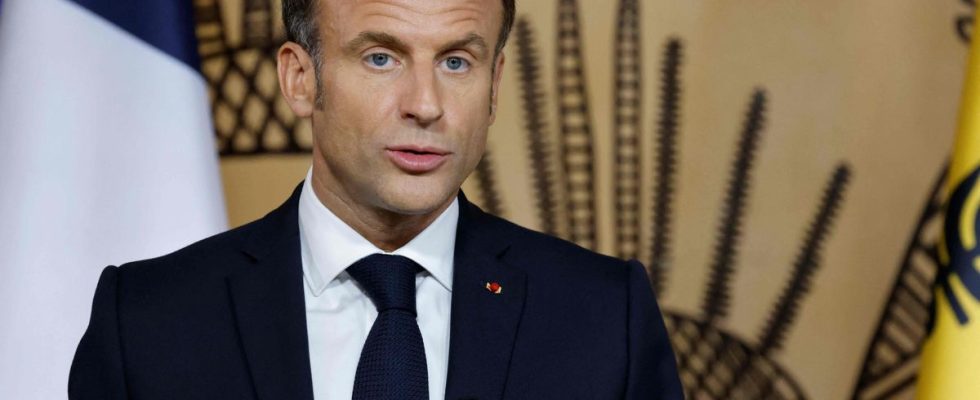The Head of State starts his tour in the Pacific. This Monday, Emmanuel Macron arrived in New Caledonia. He said he wanted to open “a new page” to overcome “the antagonisms” between loyalists and separatists, against the backdrop of the threat of a boycott from some of the latter.
Upon his arrival at La Tontouta airport in Nouméa around 6 p.m. (9 a.m. French time), the Head of State recalled that, since his previous visit in 2018, three referendums had allowed, “in accordance with the agreements, the population to express themselves “. They ended with a “no” to the independence of the archipelago, even if the last is contested by the separatists who had boycotted it.
An institutional puzzle
Emmanuel Macron assured the journalists gathered on the tarmac that he wanted to “lay the foundations” for the “future status” for this territory, while the government is facing a real institutional headache.
The referendums “anchor New Caledonia with France in the Republic over time and this then means working on political subjects, institutional subjects, reforms of the Constitution”, he said, promising to speak on these issues during his visit. His trip began with a symbolic gesture: he presented the insignia of Commander of the Legion of Honor to Marie-Claude Tjibaou, widow of the assassinated Kanak leader Jean-Marie Tjibaou.
The hope of a “unified destiny”
The latter’s “forgiveness” to her husband’s killer is “a message of hope for the New Caledonian people aspiring to this reunited destiny towards which everyone walks, gropes, sometimes stumbles”, he underlined. He paid tribute to the one who has overcome “antagonisms” and “dream of a New Caledonia” which “does not lose its strength in internal divisions, in block logic”. “We must follow in your footsteps to learn how to appease the memories between the State and the Caledonians. »
During his first trip to the archipelago in 2018, Emmanuel Macron had submitted to the collegiate government of the territory the two acts of taking possession of this territory, in 1853, in the name of Napoleon III. “We are no longer in the time of possession,” he said then. But the separatists continue to ask for acts in terms of reparations to turn the page on the “colonial dispute”. However, the president does not seem to want to immediately make such a gesture again.

